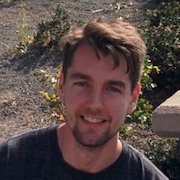Early Career Case Study: Dr Paul Tobin
Tell us about your background. Where are you from and what did you do before you joined the Department of Environment and Geography?
I'm from Stockport in Greater Manchester originally, but I grew up in the fenlands of East Anglia during my teens. Two very different places. I then studied International Relations and Politics at the University of Sheffield, where I also spent a year as President of the Students' Union. I really enjoyed campaigning but knew that I wanted to carry on studying, so I was lucky to receive a scholarship for a Master's at the University of Leeds. It was while at Leeds that I realized I wanted to research environmental politics, and I won a scholarship to do my PhD on the subject at the Politics Department here at York. I then moved over to the Department of Environment and Geography for my postdoc, and here I am!
Why did you decide to become an Early Career Researcher in the Department of Environment and Geography?
When I became aware of the postdoc I know have, I knew I had to apply. The topic - 'the impact of the economic crisis on European environmental policy' - matches my research interests perfectly. I also knew Charlie, my PI, from previously working together, so I knew that I would be joining an excellent team. The prospect of staying in York, where I had done my PhD, was a real bonus too- York really is a stunning city, where my friends always want to come and visit.
Tell us about your research. What do you currently work on and how are you funded?
I'm currently researching the impact of the economic crisis on European environmental policy. It is a three year project funded by the Leverhulme Trust, and there are three of us on the team: Charlie Burns, my PI; Justus Andreas, a PhD student; and me. We're tracing the impacts of the crisis in a variety of ways. I spent three months conducting interviews with policy-makers in Brussels, but we're also doing more quantitative work as well. At the moment, we're reading through and coding every piece of EU environmental legislation to assess how ambition has changed over time. I think our work will make a real contribution.
What part of your work do you like best?
I really enjoy discussing my findings with colleagues, as I find that's how the most crucial nuances are identified. We have an interdepartmental cluster on environmental politics and policy that meets twice a semester and stretches across Environment, Politics, Law, the Stockholm Environment Institute, and more. It's a really useful way to gather feedback, and I also really enjoy hearing about my colleagues' research, which is can sometimes be very different in focus to mine.
What piece of advice would you share with other Early Career researchers?
I'd encourage all ECRs to get involved in their most closely associated learned society. In my field, the Political Studies Association is the most closely linked learned society, and I find that academics are always looking to encourage new academics to get more involved. I spent three years co-convening the Association's Environment Group, and it was one of the most rewarding professional activities I have done.

